[Techie Tuesdays] Shahani Markus: the woman techie who packs a punch
Today’s Techie Tuesdays, Shahani Markus is an epitome of accomplishments and persistence. Born and brought up in Sri Lanka into a family of doctors, Shahani would have been a doctor as well. But then certainly she would not have been the Head of Engineering at Virtusa (Sri Lanka); Chief Technology Officer at ICT Agency, Sri Lanka; Board of Management member at University of Colombo School of computing, senior eGovernance consultant at United Nations Development Program, Adviser to Royal Government of Bhutan, and later co-founder of three companies.
However glamorous it may appear, life has been but fair to Shahani till date. Whether it was her academic life or corporate one, she experienced discrimination because of her gender. But she bounced back every single time and kept climbing up the ladder of success and achievements to become a role model for thousands of aspiring women-in-tech in Sri Lanka. Here are the edited excerpts of our conversation with Shahani:
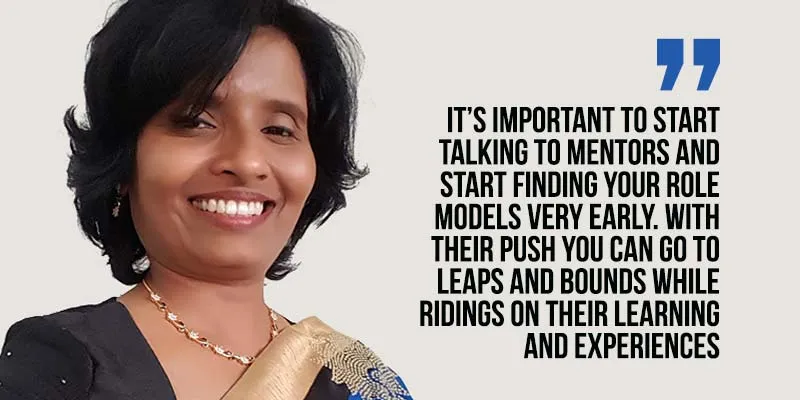
The Reader’s Digest tech era
As a child, Shahani was studious and a voracious reader. She used to read cover to cover everything right from the ‘Time’ magazine, ‘NewsWeek’ to ‘Reader’s Digest’. Remember, it was the time when television had just come to Sri Lanka and there was still no Internet. Through magazines, Shahani had already framed a picture of tech-savvy US where she wanted to learn computers and live in the future. But her parents were grooming her to be a doctor. Moreover, being a woman it wasn’t expected of her to take a bold decision to move out of Sri Lanka.
After her 10th standard, Shahani opted for mathematics & zoology so that the option for both medical and physical sciences are open to her. However, given her interest in maths, she had to engineer herself to not get selected in the medical entrance examinations and get through physical sciences instead. While the University of Colombo offered computers at that time at the Department of Statistics and Mathematics, a sudden change in government regulations put a halt to admissions in that course. Shahani’s parents were disappointed with this, but they could see a ray of hope at the National Institute of Business Management (NIBM) where they were running a diploma course in Computer Systems design.
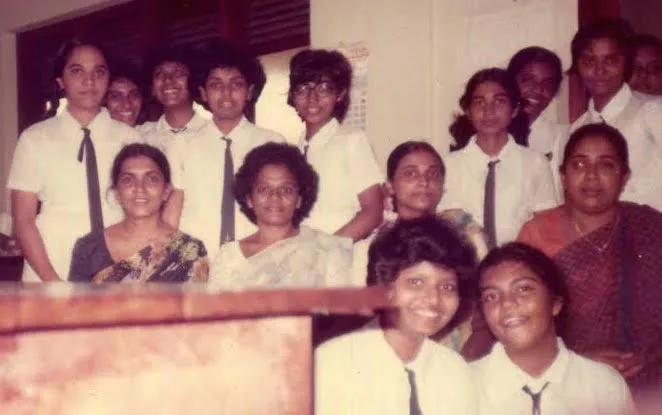
The Sinclair Spectrum was a personal home computer launched in the UK those days and Shahani’s father got it too. While her brother used to play games on it, Shahani was already busy breaking into its source code after reading a few magazines. She topped her batch at NIBM and even got the recommendation by the head of the institute to pursue higher studies in the US. The awareness about good colleges came with her work of writing the library management program and data entry. She would flip through journals to see which university submitted these papers.
The dilemma, drama and degree
Shahani’s parents objected to her decision when she wanted to go to the US for higher studies. They insisted that she study law as she had cleared the Law College exams as well (which her mother made sure that she appeared for). It took her parents a meeting with the dean of NIBM to agree to send their daughter to the US.
Unfortunately, Shahani’s father passed away very soon after she applied for her Bachelors in the US. She was concerned about the financial status as without any will, as a minor, she didn’t have assets to support her education which were frozen by law and undergoing a testamentary case. It was then, when a physician from the US, who knew her father, visited the family to express his condolence, shared that her father had academically helped him in Medical College and he would be happy to help the family in whatever way possible. Shahani saw her luck striking here and found a sponsor for her education. She started college at Purdue University where she realized how the percentage of girls was less in engineering.
She finished her Bachelors in Computer Science and Mathematics and later Masters in Mathematics given her fascination with the world of numbers. Shahani met another Sri Lankan scholar pursuing his Ph.D. in Purdue during that time, whom she dated and later married. By the time she finished her Ph.D., she had had two kids.
Shahani’s research was in parallel software reuse for partial differential equation solvers. She was also working on how to use regular programming languages like C, Java, and Perl in scientific computing and in harnessing and compiling hybrid supercomputer scientific software in admin modules.
Of falling self esteem and moving back
In 1997, Shahani joined IBM Research Center in New York as a consultant. At that time, New York startups were busy building systems for online stock trading, debt trading, and other information technologies for the financial industry. After her Ph.D. in 1999 she worked in one such startup for a year as a principal engineer. She says,
In the US with so few women (as compared to Sri Lanka) at academics and work, I began to lose my self esteem. Somehow, I didn’t get the validation that I was really good.
Shahani’s problem was a lack of any female role models then. When her husband decided to return to Sri Lanka expressing his desire to bring up their children in Sri Lankan culture, Shahani was not keen to shift. She was talking to the CEO of Virtusa then and when he realized that Shahani might move to Sri Lanka, he suggested her to go visit the facility in Sri Lanka. Shahani was hired by Sri Lanka team as Chief Architect and was allowed to work in Boston for some time initially.
From enterprise to eGovernance
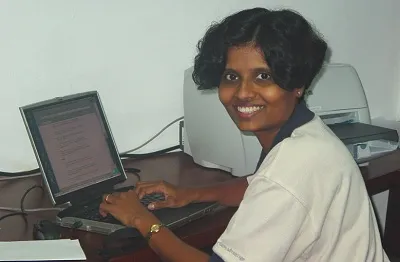
In her five years at Virtusa, Shahani was in the team that grew the Sri Lankan center from 200 to over 1000 members. She was managing the technology team at the company responsible for powering 20 projects going on simultaneously. She was responsible for building the processes for the team, designing the performance measurement system, and reviewing software designs and architectures.
She had started feeling that her children needed her at home but soon after quitting she realized that she couldn’t stay at home either.
Shahani's mentor, Professor Samaranayake, was the Chairman of the apex body of the Sri Lankan government, which was working to implement eGovernance in the country. She was invited to join as CTO of ICT agency of Sri Lanka. It was very different from her work at enterprise solution but an offer she couldn’t refuse as well.
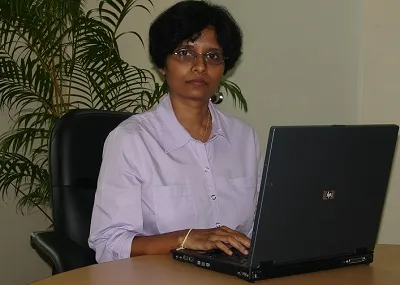
In her tenure at ICT agency, she was running the Lanka Gate project aimed at connecting all the systems to a main system in Sri Lanka. The entire project was funded by the World Bank. Shahani envisioned how the project could be shifted to a service-oriented architecture. Being an advocate of open source, she was pushing towards implementation with open source components where she got flagged a lot. The biggest challenge with open source was that it would result in change of the procurement method. She says,
With our architecture, we can still procure in an agile way whereas the current system was using the waterfall methodology. The discussion went up to Washington DC office of World Bank. In the meanwhile, we published a paper describing an agile procurement method for open source based eGovernment solutions. We could reduce the cost so much with this change.
With the support of World Bank and internal backing, Shahani successfully implemented this. At the end of the first year, Professor Samarnayake passed away and it became increasingly difficult for Shahani to manage her work in the political environment of the organization which she was earlier shielded from by the professor. After two years of service, Shahani decided to quit ICT agency.
The professor who encouraged starting up
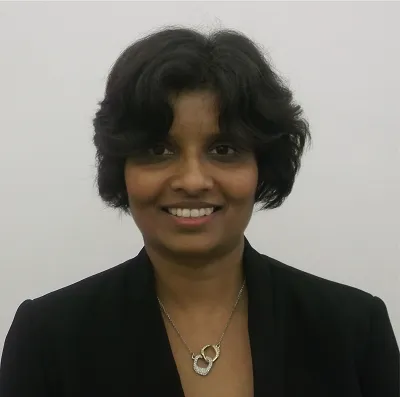
Shahani was a senior lecturer in the Department of Computer Science and Engineering at University of Moratuwa, the topmost engineering college of Sri Lanka. She was teaching communications, software architecture and engineering to the Masters’ students.
As a part of Capstone research projects for final year students in the university, Shahani was keen on selecting teams which would work on her ideas and spin off into companies later on. She even promised that whoever decided to go ahead, would receive a salary at industry standards for two years.
By now, Shahani wanted to spend more time with her family and take a break. In 2011, she resigned from her full-time role in the college and continued consulting on a few projects and as a guest faculty. However, she went through some extremely rough period in her personal life and wanted to restart working almost immediately.
And finally starting up, not once or twice
Shahani says,
IT industry either viewed me as an academic or overqualified for the job. I decided to start up and founded a software solution company, Auxenta. Our company works towards reducing the burn-rate of enterprises.
Because of her dual citizenship, Shahani could easily go out of Sri Lanka then. In the US, she was based in California where her startup was also incorporated in January 2014. Meanwhile, in March 2014, four students graduating from University of Moratuwa decided to continue the Capstone project Sith which which could capture and analyze feelings in a language-agnostic manner. Shahani recalls,
On their graduation, they asked if I’ll start a company and I said sure.
Two of the four students joined the industry and the remaining two became a part of Emojot Inc, spinning off from their project. Manjula Dissanayake, a Ph.D. scholar in Adelaide, Australia, who had startup experience, came on board as co-founder.
Shahani also co-founded Capaxus, as a partnership with the largest stock broking company in Sri Lanka.
Emojot: where emotions and technology go hand in hand
Emojot is an audience engagement platform focusing on media, mainly digital media and TV. The company has already submitted provisional patents eight months ago. According to Shahani, they are better and ahead than any other player across the world working on this segment. She claims that the audience response system from Microsoft - Bing Pulse, is a competitor, but lags behind Emojot in capabilities. Emojot is able to capture emotions and analyze them in real time. With this data, the clients can go back to people and push messages in the form of ads all in real time. Shahani believes that emotions arise contextually and Emojot helps you ascertain the audience feelings. The company is already running a pilot with the largest TV channel in Sri Lanka.
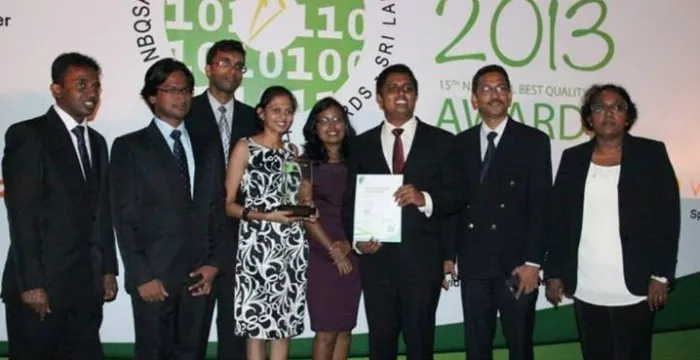
Emojot has all open source technology running at its backend. They have a complex engagement engine solving the big data problem after analyzing and segmenting it in real time. They capture demographics of the audience and the associated emotes associated. The platform is capable of supporting millions of emotes per second and is hosted on Amazon cloud. The client can see the real-time analytics of these emotes on a dashboard.
Team Emojot has been working remotely with Shahani in the US, two engineering graduates in Sri Lanka, Manjul in Australia, and a graphic designer in New Zealand. The team met for the first time in December 2014. Shahani says,
Emotions are like water drops, they don’t last for long.
With a mature SaaS solution in production, Emojot is now actively looking for funding to support sales, marketing, and to continue with the roadmap.
Learning and mistakes
Shahani believes that she should have had far more self esteem in terms of her capabilities and skills. She now spends a lot of time among women students as a mentor and role model. She has immense faith in the power of IT and sees eGovernance playing a very important role in people’s daily lives.
Shahani believes that technology is an enabler. She says,
Getting into the tech field is best for females as with tech you can work on your commitments and still give face-time to family. This is a little tough being a doctor or lawyer where you’ve to be present on site most of the time.
According to Shahani, success of a startup is completely dependent on the team and its dynamics. On a parting note, she emphasizes,
It’s important to start talking to mentors and start finding your role models very early. They give you a push through which you can grow leaps and bounds while leveraging on their learning and experiences.


![[Techie Tuesdays] Shahani Markus: the woman techie who packs a punch](https://images.yourstory.com/cs/wordpress/2015/08/Shahani-Marcus-Techie-Tuesdays.jpg?mode=crop&crop=faces&ar=2%3A1&format=auto&w=1920&q=75)




